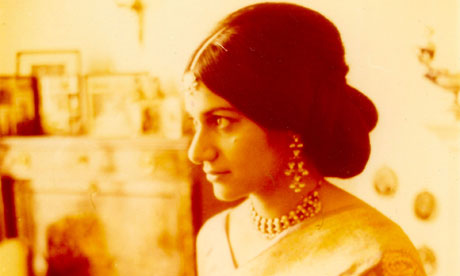
Mala Sen, who has died of oesophageal cancer aged 63, was best known for her 1991 book India's Bandit Queen: The True Story of Phoolan Devi, which formed the basis for the critically acclaimed though controversial feature film Bandit Queen (1994), directed by Shekhar Kapur. Behind the personal story of Devi, which took Mala years to coax out of her subject, she explored the wider issue of the victimisation of women, especially in rural India, where they are often conditioned to believe that they are worthless. She continued this theme in a second pathbreaking book, Death by Fire: Sati, Dowry Death and Female Infanticide in Modern India (2001).
She came to writing through social activism, having taken up numerous causes in London in the 1960s, at a time when women's groups were emerging and there was a combined movement of black activist organisations. Mala was born in Mussoorie, India. Her parents divorced when she was six, and she went to live with her father, an army man. They moved a lot, so Mala never felt rooted in one place.
After her father retired, she went to Nirmala Niketan college for home science in Mumbai. She fell in love with a young intellectual, Farrukh Dhondy, who had won a Tata scholarship to Cambridge, and they eloped to the UK in 1965. In London, they were committed to equality, especially in race relations, immigration and housing. Mala initially worked in sweatshops, sewing, to pay the bills.
She was stunned by the prejudice against immigrants, and took up her first challenge by fighting for the equal rights of Indian factory workers in Leicester. Through the Race Today collective and journal, she supported the Bangladeshis of the East End in the early 1970s. Men working in sweatshops lived in squalid rented rooms converted into dormitories, where different people slept in the same beds according to their shifts. They had been separated from their wives and children in Dhaka and could not get any permanent council housing because they were classified as "single".
By night Mala and Farrukh, along with the campaigners Terry Fitzpatrick and Darcus Howe, formed a vigilante group to protect a community under attack by racists; by day Mala worked as a booking clerk at Air India. They also founded the Bengali Housing Action Group, which sourced empty council flats for homeless Bangladeshis, and drew up a map for the then Greater London council, defining a safe living area for the community, thus establishing Brick Lane as the Bangladeshi heartland of Britain.
Mala was very adept at getting people to trust her and she was soon asked to research television documentaries. On one such job in India, Mala was moved and intrigued by press reports of Phoolan Devi, a lower-caste woman who had endured poverty, an abusive marriage at the age of 11, gang rape and kidnap by bandits. Devi became a bandit herself, delivering justice for rape victims and stealing from the rich to give to the poor. At 24, she was charged with 48 major offences, including the murder of 22 high-caste Thakur men, as revenge for them having murdered her lover and for her gang rape. Devi, who became an idol to the poor, negotiated her own surrender in 1983 and was incarcerated for 11 years without trial.
By befriending Devi's family, Mala gained the trust of the bandit herself. She visited her in jail and persuaded the young woman – who could neither read nor write – to dictate her story in Hindi to fellow prisoners and smuggle these diaries out to Mala. India's Bandit Queen, written from eight years' worth of research, was translated into 11 languages.
In 1994, the year of Devi's release, Kapur's film was produced, with backing from Channel 4. The film was based on the prison diaries, and credited Mala as screenwriter, but privately it angered her. It made Phoolan out to be "pathetic", she believed, and "its moral and political implications" she could never reconcile within herself. She had delivered a long script, which had been heavily edited, with graphic scenes added.
Encouraged by the writer Arundhati Roy, Devi took the film-makers – including Mala – to court, demanding the film be banned for invading her sexual privacy by showing the gang rape and for implicating her in a mass murder that she denied having committed.
Mala was forced to defend herself, though she suspected that Devi, now famous worldwide, was hoodwinking everyone. Channel 4 eventually settled out of court, paying Devi £40,000. Devi immediately ended proceedings and announced that she now supported the film. Mala stayed loyal to the film-makers, never speaking publicly against the film, and claiming it was based on many sources. She remained close to Devi in the years following, when the former outlaw underwent a remarkable transformation, becoming an Indian MP in 1996, and they were in touch up until Devi's assassination in 2001.
Mala became increasingly isolated and depressed later in life. She explained herself by saying "if you don't know where to go, stand still". She had become disillusioned with British and Indian politics; with the feminist movement; with how the Bengali community in the East End had turned out. For years she suffered writer's block, but at the time of her death, she had completed a few chapters for a new book on women with HIV in India.
Her marriage to Dhondy ended in divorce, although they remained friends. She is survived by her partner of 11 years, Jimmy Ball, and a sister and brother.
• Mala Sen, writer and activist, born 3 June 1947; died 21 May 2011

